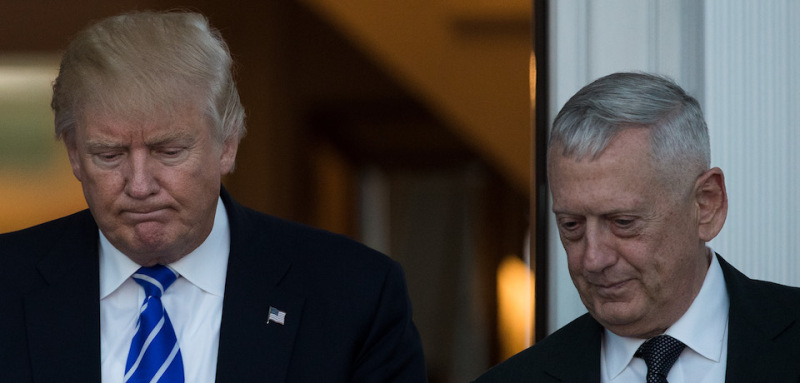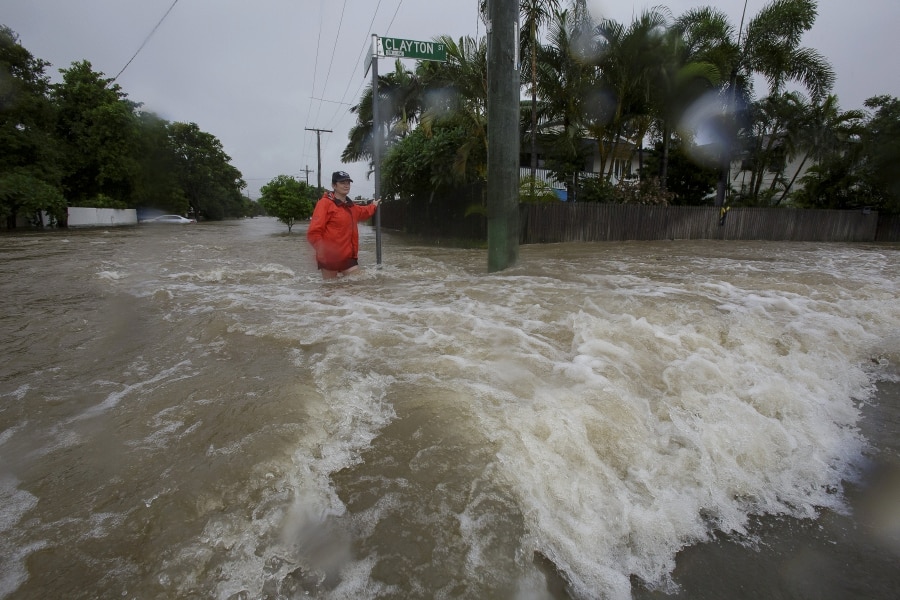Asia Times
RICHARD A. BITZINGER

The American-led security infrastructure in Asia faces new challenges from without and within. President Donald Trump’s “America First” national-security strategy threatens to up-end 70 years of alliance- and partnership-making in the region, at the same time as a rising China threatens to upset the traditional modus vivendi that provided security and stability in the region.
Making things worse, we do not possess much detail when it comes to Trump’s approach toward Asia. Just what is the essence of his “Asia policy”? If you don’t know, then you are not alone. This is because so much of Trump himself – and therefore his administration – seems to be so ad hoc and improvised.
Trump is, of course, the master of extemporization and gut feelings. He is a man of instinct and spur-of-the-moment feeling, rather than policy; this makes him flexible, but it also makes him difficult to pin down when it comes to what he really wants.
Stapling Jell-O to the wall?
This informal and makeshift style of decision-making that his so-called Asia policy is like stapling Jell-O to the wall. It doesn’t help that Trump has said so little about Asia. In 2017, he traveled to the Asia-Pacific Economic Cooperation (APEC) summit and enunciated his so-called “Indo-Pacific dream” – a “free and open Indo-Pacific” (FOIP). Trump basically borrowed this phrase from Japanese Prime Minister Shinzo Abe, who coined it a decade ago to rally like-minded countries to cooperate for mutual and regional economic and military security.
In addition, both the 2017 US. National Security Strategy and the 2018 National Defense Strategy reports articulated a regional strategy of deep engagement with Asia. In particular, they warned that China was seeking to displace the United States and in so doing establish a Sino-centric order in the region through economic inducements, information operations and military coercion.
These reports were highly critical of Chinese actions in the South China Sea, particularly regarding Beijing’s growing military presence in and around the Spratly Islands, which “endangers the free flow of maritime trade, threatens the sovereignty of other nations and undermines regional stability.”
2018: Chaos reigns?
After these few bold pronouncements, however, there has been little follow-up. In 2018, for example, Trump failed to attend several Asia security forums, such as the ASEAN Summit, APEC, and the East Asia Summit. Moreover, Trump appears to be almost totally focused on the Korean Peninsula, to detriment of the rest of Asia.
Moreover, Trump’s foreign-policy team has been in near-total disarray. The president devoted the first year of his term assembling a relatively proficient lineup of national-security experts – secretary of defense James Mattis, national security adviser H R McMaster, chief of staff John Kelly, secretary of state of Rex Tillerson, and UN representative Nikki Haley – and then spent the following year dismantling that very team.
Trump’s replacements are either relatively inexperienced when it comes to Asian foreign and security policy or are focused on just a few pet projects (such as national security adviser John Bolton’s fixation with Venezuela). There are very few notable Asia experts currently serving in the Trump administration. Overall, therefore, there is very little meat on the bones of the FOIP concept.
More continuity than we think?
On the other hand, there are those who believe that Trump’s policies toward Asia (or the Indo-Pacific) are more traditional than one might think. US military commitments toward the region have not waned. If anything, the Trump administration is upping its game in Asia.
It expanded its annual Cobra Gold exercises with Thailand, nearly doubling the number of US military personnel involved; this enlargement is seen as an indicator of improved US-Thai relations, which had cooled considerably after the 2014 military coup.
Second, the US Navy has continued to carry out “freedom of navigation operations” in the South China Sea. It undertook at least eight regional FONOPs in 2018 and recently conducted its first operation in 2019, when in early January the destroyer USS McCampbell sailed to within 12 nautical miles of the Paracel Islands group in the South China Sea, which are claimed by China. Doubtless, the Trump administration will continue to challenge China’s maritime claims in this region.
On autopilot?
Finally, there are some who simply say that current US foreign and security policy toward Asia is on autopilot. In an excellent paper by Aaron L Connelly (“Autopilot: East Asia Policy under Trump,” The Lowy Institute, October 31, 2017), he argues that while Trump promised a bold new “America First” foreign policy, his policies in East Asia still closely resemble those of earlier presidents – not by design, but because his administration lacks the “necessary expertise, experience, and inclination to implement” such a strategy.
The dangers of such autopilot policymaking is twofold. In the first place, Connelly argues, in a complex and dynamic world, there are obvious risks to permitting US foreign policy to run on automatic, as “the autopilot will struggle to manage unanticipated challenges.”
More important, should a crisis arise, the autopilot will have to be “disengaged,” and Trump will actually have to perform. In such a situation, Connelly warns, “all of Trump’s instincts, insecurities, and prejudices will come to the fore, and the judgment, wisdom, and equanimity of the principals and professionals will fall away.”
And here we return full-circle to the earlier dilemma of Trump’s improvisational style of policymaking. Flying by the seat of one’s pants is not the way to conduct foreign policy, but it seems as if we are stuck with it.




